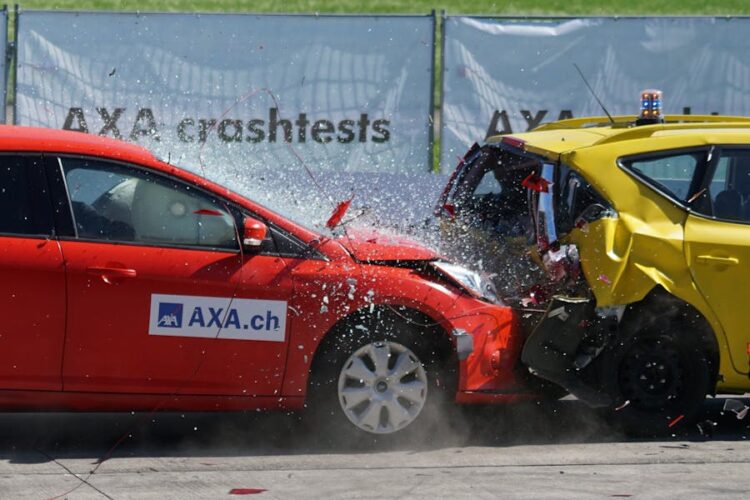On May 13, 2024, a Houston woman crashed into a METRO bus stop where a group of people were waiting. According to the Houston Police Department, the woman was driving under the influence when she hit two pedestrians. Unfortunately, one of the victims did not survive the accident.
The investigation revealed that the woman, in her 40s, was driving at an excessive speed as she hit the sidewalk and ran into the two individuals waiting at the bus stop. The woman also crashed into a light pole, which knocked the traffic lights into the intersection.
Drunk driving is more than a statistic; it’s a grim reality that leaves physical and psychological scars on individuals, families, and entire communities. Behind every headline detailing a tragic accident lies a story of profound loss and devastation.
The Human Cost of Drunk Driving
The damage of drunk driving extends far beyond individual victims, casting a long shadow over families and communities alike. The emotional toll is staggering, as loved ones are forced to confront their loss and the journey of healing. For every life lost, there are countless hearts left broken.
Meanwhile, survivors of drunk driving accidents are left to grapple with the enduring physical and mental scars of their ordeal. From debilitating injuries to crippling psychological trauma, the road to recovery is fraught with challenges and burdens. Physical rehabilitation is just the beginning, as survivors contend with the upheaval of their lives and the daunting task of rebuilding in the aftermath of tragedy.
Legal Ramifications & Individual Consequences
In Texas, as in many states across the nation, driving under the influence (DUI) is a serious offense with severe consequences. The legal blood alcohol concentration (BAC) limit is set at 0.08%, and those found to exceed this threshold face a range of penalties, from fines and license suspension to imprisonment. Repeat offenders or those involved in accidents resulting in injury or death may face even harsher sanctions under Texas law.
DUI laws vary by state but share a common goal: combatting the prevalence of drunk driving and fostering public safety. Penalties may include fines, license revocation, mandatory alcohol education programs, and even ignition interlock devices for habitual offenders. The severity of the punishment depends on factors such as prior convictions, BAC level, and the presence of any aggravating circumstances.
For those convicted of drunk driving, the consequences extend far beyond the confines of the courtroom, reshaping their lives in often permanent ways. Fines and court costs can exact a heavy financial toll, draining savings and straining budgets. License suspension or revocation deprives offenders of their freedom to travel and can disrupt their ability to work or fulfill family obligations.
In the most serious cases, drunk drivers may face imprisonment, serving time as punishment for their actions. While incarceration is intended to deter future offenses and hold offenders accountable, it also carries social and economic consequences that reverberate long after release. Rehabilitation programs may offer a path to redemption for some, providing education, counseling, and support to help offenders address underlying issues such as substance abuse.
Unfortunately, according to the Addiction Center, ⅓ of drunk drivers are repeat offenders.
Societal Impact & Prevention Efforts
The economic toll of drunk driving is staggering and has far-reaching implications for individuals, businesses, and governments alike. From medical expenses and property damage to lost productivity and legal fees, the financial burden of impaired driving reverberates throughout the economy.
According to the National Highway Traffic Safety Administration (NHTSA), the cost of drunk driving accidents in the United States was $68.9 billion in 2019, a sobering reminder of the real-world consequences of these preventable accidents.
Advances in technology offer promising avenues for preventing drunk driving and saving lives on our roadways. From breathalyzer-equipped ignition interlock devices to smartphone apps that help users estimate their blood alcohol concentration, innovative solutions are emerging to combat impaired driving at every turn. Moreover, policymakers are increasingly turning to legislative measures such as mandatory ignition interlock device installation for convicted drunk drivers and sobriety checkpoints to deter and detect impaired driving.
At the same time, initiatives to promote alternative transportation options, such as ridesharing services and public transit, offer practical alternatives to getting behind the wheel while under the influence. By making it easier and more convenient for individuals to make responsible choices, these initiatives contribute to a culture of safety and responsibility on our roads.
Legal Recourse for Victims of Drunk Drivers
In the aftermath of a drunk driving accident, victims and their families often find themselves grappling with not only the physical and emotional toll of the tragedy but also the daunting financial burden. Fortunately, the legal system offers avenues for recourse and redress, empowering victims to hold drunk drivers accountable for their actions and seek compensation for their losses.
In addition to facing criminal charges, drunk drivers may also be held liable for the harm they cause to others. Civil lawsuits allow victims or their families to recover damages for medical expenses, lost wages, pain and suffering, and other losses resulting from the accident. These lawsuits are separate from criminal proceedings and may proceed even if the driver is acquitted or not charged criminally.
Navigating the legal process can be complex and overwhelming, particularly for those already grappling with a traumatic situation. Seeking guidance from experienced legal counsel is can help ensure that victims’ rights are protected and that they receive the compensation they deserve.
Closing Thoughts
The tragic events of the accident in Houston serve as a poignant reminder of the devastating consequences of drunk driving. Behind every statistic lies a human story. The impact of impaired driving extends far beyond individual victims, casting a long shadow over families, neighborhoods, and entire towns.
The fight against drunk driving is a collective endeavor, requiring the concerted efforts of individuals, communities, and governments alike. Together, we can build a world free from the senseless tragedy of impaired driving, where every life is valued, every family is protected, and every community thrives.










